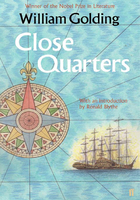Part II Short Stories Published in Books or Magazines Subsequent to "The First Forty-nine"
YOU KNOW HOW IT IS THERE EARLY IN the morning in Havana with the bums still asleep against the walls of the buildings; before even the ice wagons come by with ice for the bars? Well, we came across the square from the dock to the Pearl of San Francisco Café to get coffee and there was only one beggar awake in the square and he was getting a drink out of the fountain. But when we got inside the café and sat down, there were the three of them waiting for us.
We sat down and one of them came over.
"Well," he said.
"I can't do it," I told him. "I'd like to do it as a favor. But I told you last night I couldn't."
"You can name your own price."
"It isn't that. I can't do it. That's all."
The two others had come over and they stood there looking sad. They were nice-looking fellows all right and I would have liked to have done them the favor.
"A thousand apiece," said the one who spoke good English.
"Don't make me feel bad," I told him. "I tell you true I can't do it."
"Afterwards, when things are changed, it would mean a good deal to you."
"I know it. I'm all for you. But I can't do it."
"Why not?"
"I make my living with the boat. If I lose her I lose my living."
"With the money you buy another boat."
"Not in jail."
They must have thought I just needed to be argued into it because the one kept on.
"You would have three thousand dollars and it could mean a great deal to you later. All this will not last, you know."
"Listen," I said. "I don't care who is President here. But I don't carry anything to the States that can talk."
"You mean we would talk?" one of them who hadn't spoken said. He was angry.
"I said anything that can talk."
"Do you think we are lenguas largas?"
"No."
"Do you know what a lengua larga is?"
"Yes. One with a long tongue."
"Do you know what we do with them?"
"Don't be tough with me," I said. "You propositioned me. I didn't offer you anything."
"Shut up, Pancho," the one who had done the talking before said to the angry one.
"He said we would talk," Pancho said.
"Listen," I said. "I told you I didn't carry anything that can talk. Sacked liquor can't talk. Demijohns can't talk. There's other things that can't talk. Men can talk."
"Can Chinamen talk?" Pancho said, pretty nasty.
"They can talk, but I can't understand them," I told him.
"So you won't?"
"It's just like I told you last night. I can't."
"But you won't talk?" Pancho said.
The one thing that he hadn't understood right had made him nasty. I guess it was disappointment, too. I didn't even answer him.
"You're not a lengua larga, are you?" he asked, still nasty.
"I don't think so."
"What's that? A threat?"
"Listen," I told him. "Don't be so tough so early in the morning. I'm sure you've cut plenty people's throats. I haven't even had my coffee yet."
"So you're sure I've cut people's throats?"
"No," I said. "And I don't give a damn. Can't you do business without getting angry?"
"I am angry now," he said. "I would like to kill you."
"Oh, hell," I told him, "don't talk so much."
"Come on, Pancho, the first one said. Then, to me, "I am very sorry. I wish you would take us."
"I'm sorry, too. But I can't."
The three of them started for the door, and I watched them go. They were good-looking young fellows, wore good clothes; none of them wore hats, and they looked like they had plenty of money. They talked plenty of money, anyway, and they spoke the kind of English Cubans with money speak.
Two of them looked like brothers and the other one, Pancho, was a little taller but the same sort of looking kid. You know, slim, good clothes, and shiny hair. I didn't figure he was as mean as he talked. I figured he was plenty nervous.
As they turned out of the door to the right, I saw a closed car come across the square toward them. The first thing a pane of glass went and the bullet smashed into the row of bottles on the show-case wall to the right. I heard the gun going and, bop, bop, bop, there were bottles smashing all along the wall.
I jumped behind the bar on the left side and could see looking over the edge. The car was stopped and there were two fellows crouched down by it. One had a Thompson gun and the other had a sawed-off automatic shotgun. The one with the Thompson gun was a nigger. The other had a chauffeur's white duster on.
One of the boys was spread out on the sidewalk, face down, just outside the big window that was smashed. The other two were behind one of the Tropical beer ice wagons that was stopped in front of the Cunard bar next door. One of the ice-wagon horses was down in the harness, kicking, and the other was plunging his head off.
One of the boys shot from the rear corner of the wagon and it ricocheted off the sidewalk. The nigger with the tommy gun got his face almost into the street and gave the back of the wagon a burst from underneath and sure enough one came down, falling toward the sidewalk with his head above the curb. He flopped there, putting his hands over his head, and the chauffeur shot at him with the shotgun while the nigger put in a fresh pan, but it was a long shot. You could see the buckshot marks all over the sidewalk like silver splatters.
The other fellow pulled the one who was hit back by the legs to behind the wagon, and I saw the nigger getting his face down on the paving to give them another burst. Then I saw old Pancho come around the corner of the wagon and step into the lee of the horse that was still up. He stepped clear of the horse, his face white as a dirty sheet, and got the chauffeur with the big Luger he had, holding it in both hands to keep it steady. He shot twice over the nigger's head, coming on, and once low.
He hit a tire on the car because I saw dust blowing in a spurt on the street as the air came out, and at ten feet the nigger shot him in the belly with his tommy gun, with what must have been the last shot in it because I saw him throw it down, and old Pancho sat down hard and went over forward. He was trying to come up, still holding onto the Luger, only he couldn't get his head up, when the nigger took the shotgun that was lying against the wheel of the car by the chauffeur and blew the side of his head off. Some nigger.
I took a quick one out of the first bottle I saw open and I couldn't tell you yet what it was. The whole thing made me feel pretty bad. I slipped along behind the bar and out through the kitchen in back and all the way out. I went clean around the outside of the square and never even looked over toward the crowd there was coming fast in front of the café and went in through the gate and out onto the dock and got on board.
The fellow who had her chartered was on board waiting. I told him what had happened.
"Where's Eddy?" this fellow Johnson that had her chartered asked me.
"I never saw him after the shooting started."
"Do you suppose he was hit?"
"Hell no. I tell you the only shots that came in the café were into the show case. That was when the car was coming behind them. That was when they shot the first fellow right in front of the window. They came at an angle like this—"
"You seem awfully sure about it," he said.
"I was watching," I told him.
Then, as I looked up, I saw Eddy coming along the dock looking taller and sloppier than ever. He walked with his joints all slung wrong.
"There he is."
Eddy looked pretty bad. He never looked too good early in the morning but he looked plenty bad now.
"Where were you?" I asked him.
"On the floor."
"Did you see it?" Johnson asked him.
"Don't talk about it, Mr. Johnson," Eddy said to him. "It makes me sick to even think about it."
"You better have a drink," Johnson told him. Then he said to me, "Well, are we going out?"
"That's up to you."
"What sort of a day will it be?"
"Just about like yesterday. Maybe better."
"Let's get out then."
"All right, as soon as the bait comes."
We'd had this bird out three weeks fishing the stream and I hadn't seen any of his money yet except one hundred dollars he gave me to pay the consul and clear and get some grub and put gas in her before we came across. I was furnishing all the tackle and he had her chartered at thirty-five dollars a day. He slept at a hotel and came aboard every morning. Eddy got me the charter so I had to carry him. I was giving him four dollars a day.
"I've got to put gas in her," I told Johnson.
"All right."
"I'll need some money for that."
"How much?"
"It's twenty-eight cents a gallon. I ought to put in forty gallons anyway. That's eleven-twenty."
He got out fifteen dollars.
"Do you want to put the rest on the beer and the ice?" I asked him.
"That's fine," he said. "Just put it down against what I owe you."
I was thinking three weeks was a long time to let him go but if he was good for it what difference was there? He should have paid every week anyway. But I've let them run a month and got the money. It was my fault but I was glad to see it run at first. It was only the last few days he made me nervous but I didn't want to say anything for fear of getting him plugged at me. If he was good for it, the longer he went the better.
"Have a bottle of beer?" he asked me, opening the box.
"No thanks."
Just then this nigger we had getting bait comes down the dock and I told Eddy to get ready to cast her off.
The nigger came on board with the bait and we cast off and started out of the harbor, the nigger fixing on a couple of mackerel; passing the hook through their mouth, out the gills, slitting the side and then putting the hook through the other side and out, tying the mouth shut on the wire leader and tying the hook good so it couldn't slip and so the bait would troll smooth without spinning.
He's a real black nigger, smart and gloomy, with blue voodoo beads around his neck under his shirt and an old straw hat. What he liked to do on board was sleep and read the papers. But he put on a nice bait and he was fast.
"Can't you put on a bait like that, Captain?" Johnson asked me.
"Yes, sir."
"Why do you carry a nigger to do it?"
"When the big fish run you'll see," I told him.
"What's the idea?"
"The nigger can do it faster than I can."
"Can't Eddy do it?"
"No, sir."
"It seems an unnecessary expense to me." He'd been giving the nigger a dollar a day and the nigger had been on a rumba every night. I could see him getting sleepy already.
"He's necessary," I said.
By then we had passed the smacks with their fish cars anchored in front of Cabanas and the skiffs anchored fishing for mutton fish on the rock bottom by the Morro, and I headed her out where the gulf made a dark line. Eddy put the two big teasers out and the nigger had baits on three rods.
The stream was in nearly to soundings and as we came toward the edge you could see her running nearly purple with regular whirlpools. There was a light east breeze coming up and we put up plenty of flying fish, those big ones that look like the picture of Lindbergh crossing the Atlantic when they sail off.
Those big flying fish are the best sign there is. As far as you could see, there was that faded yellow gulfweed in small patches that means the main stream is well in and there were birds ahead working over a school of little tuna. You could see them jumping; just little ones weighing a couple of pounds apiece.
"Put out any time you want," I told Johnson.
He put on his belt and his harness and put out the big rod with the Hardy reel with six hundred yards of thirty-six thread. I looked back and his bait was trolling nice, just bouncing along on the swell and the two teasers were diving and jumping. We were going just about the right speed and I headed her into the stream.
"Keep the rod butt in the socket on the chair," I told him. "Then the rod won't be as heavy. Keep the drag off so you can slack to him when he hits. If one ever hits with the drag on he'll jerk you overboard."
Every day I'd have to tell him the same thing but I didn't mind that. One out of fifty parties you get know how to fish. Then when they do know, half the time they're goofy and want to use line that isn't strong enough to hold anything big.
"How does the day look?" he asked me.
"It couldn't be better," I told him. It was a pretty day all right.
I gave the nigger the wheel and told him to work along the edge of the stream to the eastward and went back to where Johnson was sitting watching his bait bouncing along.
"Want me to put out another rod?" I asked him.
"I don't think so," he said. "I want to hook, fight, and land my fish myself."
"Good," I said. "Do you want Eddy to put it out and hand it to you if one strikes so you can hook him?"
"No," he said. "I prefer to have only one rod out."
"All right."
The nigger was still taking her out and I looked and saw he had seen a patch of flying fish burst out ahead and up the stream a little. Looking back, I could see Havana looking fine in the sun and a ship just coming out of the harbor past the Morro.
"I think you're going to have a chance to fight one today, Mr. Johnson," I told him.
"It's about time," he said. "How long have we been out?"
"Three weeks today."
"That's a long time to fish."
"They're a funny fish," I told him. "They aren't here until they come. But when they come there's plenty of them. And they've always come. If they don't come now they're never coming. The moon is right. There's a good stream and we're going to have a good breeze."
"There were some small ones when we first came."
"Yes," I said. "Like I told you. The small ones thin out and stop before the big ones come."
"You party-boat captains always have the same line. Either it's too early or too late or the wind isn't right or the moon is wrong. But you take the money just the same."
"Well," I told him, "the hell of it is that it usually is too early or too late and plenty of time the wind is wrong. Then when you get a day that's perfect you're ashore without a party."
"But you think today's a good day?"
"Well," I told him, "I've had action enough for me already today. But I'd like to bet you're going to have plenty."
"I hope so," he said.
We settled down to troll. Eddy went forward and lay down. I was standing up watching for a tail to show. Every once in a while the nigger would doze off and I was watching him, too. I bet he had some nights.
"Would you mind getting me a bottle of beer, Captain?" Johnson asked me.
"No, sir," I said, and I dug down in the ice to get him a cold one.
"Won't you have one?" he asked.
"No, sir," I said. "I'll wait till tonight."
I opened the bottle and was reaching it toward him when I saw this big brown bugger with a spear on him longer than your arm burst head and shoulders out of the water and smash at that mackerel. He looked as big around as a saw log.
"Slack it to him!" I yelled.
"He hasn't got it," Johnson said.
"Hold it, then."
He'd come up from deep down and missed it. I knew he'd turn and come for it again.
"Get ready to turn it loose to him the minute he grabs it."
Then I saw him coming from behind under water. You could see his fins out wide like purple wings and the purple stripes across the brown. He came on like a submarine and his top fin came out and you could see it slice the water. Then he came right behind the bait and his spear came out too, sort of wagging clean out of water.
"Let it go into his mouth," I said. Johnson took his hand off the reel spool and it started to whiz and the old marlin turned and went down and I could see the whole length of him shine bright silver as he turned broadside and headed off fast toward shore.
"Put on a little drag," I said. "Not much."
He screwed down on the drag.
"Not too much," I said. I could see the line slant up. "Shut her down hard and sock him," I said. "You've got to sock him. He's going to jump anyway."
Johnson screwed the drag down and came back on the rod.
"Sock him," I told him. "Stick it into him. Hit him half a dozen times."
He hit him pretty hard a couple of times more, and then the rod bent double and the reel commenced to screech and out he came, boom, in a long straight jump, shining silver in the sun and making a splash like throwing a horse off a cliff.
"Ease up on the drag," I told him.
"He's gone," said Johnson.
"The hell he is," I told him. "Ease up on the drag quick."
I could see the curve in the line and the next time he jumped he was astern and headed out to sea. Then he came out again and smashed the water white and I could see he was hooked in the side of his mouth. The stripes showed clear on him. He was a fine fish, bright silver now, barred with purple and as big around as a log.
"He's gone," Johnson said. The line was slack.
"Reel on him," I said. "He's hooked good. Put her ahead with all the machine!" I yelled to the nigger.
Then once, twice, he came out stiff as a post, the whole length of him jumping straight toward us, throwing the water high each time he landed. The line came taut and I saw he was headed inshore again and I could see he was turning.
"Now he'll make his run," I said. "If he hooks up I'll chase him. Keep your drag light. There's plenty of line."
The old marlin headed out to the nor'west like all the big ones go, and brother, did he hook up. He started jumping in those long lopes and every splash would be like a speed boat in a sea. We went after him, keeping him on the quarter once I'd made the turn. I had the wheel and I kept yelling to Johnson to keep his drag light and reel fast. All of a sudden I see his rod jerk and the line go slack. It wouldn't look slack unless you knew about it because of the pull of the belly of the line in the water. But I knew.
"He's gone," I told him. The fish was still jumping and he went on jumping until he was out of sight. He was a fine fish all right.
"I can still feel him pull," Johnson said.
"That's the weight of the line."
"I can hardly reel it. Maybe he's dead."
"Look at him," I said. "He's still jumping." You could see him out a half a mile, still throwing spouts of water.
I felt his drag. He had it screwed down tight. You couldn't pull out any line. It had to break.
"Didn't I tell you to keep your drag light?"
"But he kept taking out line."
"So what?"
"So I tightened it."
"Listen," I told him. "If you don't give them line when they hook up like that they break it. There isn't any line will hold them. When they want it you've got to give it to them. You have to keep a light drag. The market fishermen can't hold them tight when they do that even with a harpoon line. What we have to do is use the boat to chase them so they don't take it all when they make their run. After they make their run they'll sound and you can tighten up the drag and get it back."
"Then if it hadn't broken I would have caught him?"
"You'd have had a chance."
"He couldn't have kept that up, could he?"
"He can do plenty of other things. It isn't until after he's made his run that the fight starts."
"Well, let's catch one," he said.
"You have to reel that line in first," I told him.
We'd hooked that fish and lost him without waking Eddy up. Now old Eddy came back astern.
"What's the matter?" he said.
Eddy was a good man on a boat once, before he got to be a rummy, but he isn't any good now. I looked at him standing there tall and hollowcheeked with his mouth loose and that white stuff in the corners of his eyes and his hair all faded in the sun. I knew he woke up dead for a drink.
"You'd better drink a bottle of beer," I told him. He took one out of the box and drank it.
"Well, Mr. Johnson," he said, "I guess I better finish my nap. Much obliged for the beer, sir." Some Eddy. The fish didn't make any difference to him.
Well, we hooked another one around noon and he jumped off. You could see the hook go thirty feet in the air when he threw it.
"What did I do wrong then?" Johnson asked.
"Nothing," I said. "He just threw it."
"Mr. Johnson," said Eddy, who'd waked up to have another bottle of beer— "Mr. Johnson, you're just unlucky. Now maybe you're lucky with women. Mr. Johnson, what do you say we go out tonight?" Then he went back and lay down again.
About four o'clock when we're coming back close in to shore against the stream, it going like a mill race, us with the sun at our backs, the biggest black marlin I ever saw in my life hit Johnson's bait. We'd put out a feather squid and caught four of those little tuna and the nigger put one on his hook for bait. It trolled pretty heavy but it made a big splash in the wake.
Johnson took the harness off the reel so he could put the rod across his knees because his arms got tired holding it in position all the time. Because his hands got tired holding the spool of the reel against the drag of the big bait, he screwed the drag down when I wasn't looking. I never knew he had it down. I didn't like to see him hold the rod that way but I hated to be crabbing at him all the time. Besides, with the drag off, line would go out so there wasn't any danger. But it was a sloppy way to fish.
I was at the wheel and was working the edge of the stream opposite that old cement factory where it makes deep so close in to shore and where it makes a son of eddy where there is always lots of bait. Then I saw a splash like a depth bomb and the sword and eye and open lower jaw and huge purple-black head of a black marlin. The whole top fin was up out of water looking as high as a full-rigged ship, and the whole scythe tall was out as he smashed at that tuna. The bill was as big around as a baseball bat and slanted up, and as he grabbed the bait he sliced the ocean wide open. He was solid purple-black and he had an eye as big as a soup bowl. He was huge. I bet he'd go a thousand pounds.
I yelled to Johnson to let him have line but before I could say a word I saw Johnson rise up in the air off the chair as though he was being derricked, and him holding just for a second onto that rod and the rod bending like a bow, and then the butt caught him in the belly and the whole works went overboard.
He'd screwed the drag tight, and when the fish struck, it lifted Johnson right out of the chair and he couldn't hold it. He'd had the butt under one leg and the rod across his lap. If he'd had the harness on it would have taken him along, too.
I cut out the engine and went back to the stern. He was sitting there holding onto his belly where the rod butt had hit him.
"I guess that's enough for today," I said.
"What was it?" he said to me.
"Black marlin," I said.
"How did it happen?"
"You figure it out," I said. "The reel cost two hundred and fifty dollars. It costs more now. The rod cost me forty-five. There was a little under six hundred yards of thirty-six thread."
Just then Eddy slaps him on the back. "Mr. Johnson," he says, "you're just unlucky. You know I never saw that happen before in my life."
"Shut up, you rummy," I said to him.
"I tell you, Mr. Johnson," Eddy said, "that's the rarest occurrence I ever saw in my life."
"What would I do if I was hooked to a fish like that?" Johnson said.
"That's what you wanted to fight all by yourself," I told him. I was plenty sore.
"They're too big," Johnson said. "Why, it would just be punishment."
"Listen," I said. "A fish like that would kill you."
"They catch them."
"People who know how to fish catch them. But don't think they don't take punishment."
"I saw a picture of a girl who caught one."
"Sure," I said. "Still fishing. He swallowed the bait and they pulled his stomach out and he came to the top and died. I'm talking about trolling them when they're hooked in the mouth."
"Well," said Johnson, "they're too big. If it isn't enjoyable, why do it?"
"That's right, Mr. Johnson," Eddy said. "If it isn't enjoyable, why do it? Listen, Mr. Johnson. You hit the nail on the head there. If it isn't enjoyable—why do it?"
I was still shaky from seeing that fish and feeling plenty sick about the tackle and I couldn't listen to them. I told the nigger to head her for the Morro. I didn't say anything to them and there they sat, Eddy in one of the chairs with a bottle of beer and Johnson with another.
"Captain," he said to me after a while, "could you make me a highball?"
I made him one without saying anything, and then I made myself a real one. I was thinking to myself that this Johnson had fished fifteen days, finally he hooks into a fish a fisherman would give a year to tie into, he loses him, he loses my heavy tackle, he makes a fool of himself and he sits there perfectly content drinking with a rummy.
When we got in to the dock and the nigger was standing there waiting, I said, "What about tomorrow?"
"I don't think so," Johnson said. "I'm about fed up with this kind of fishing."
"You want to pay off the nigger?"
"How much do I owe him?"
"A dollar. You can give him a tip if you want."
So Johnson gave the nigger a dollar and two Cuban twenty-cent pieces.
"What's this for?" the nigger asks me, showing the coins.
"A tip," I told him in Spanish. "You're through. He gives you that."
"Don't come tomorrow?"
"No."
The nigger gets his ball of twine he used for tying baits and his dark glasses, puts on his straw hat and goes without saying good-bye. He was a nigger that never thought much of any of us.
"When do you want to settle up, Mr. Johnson?" I asked him.
"I'll go to the bank in the morning," Johnson said. "We can settle up in the afternoon."
"Do you know how many days there are?"
"Fifteen."
"No. There's sixteen with today and a day each way makes eighteen. Then there's the rod and reel and the line from today."
"The tackle's your risk."
"No, sir. Not when you lose it that way."
"I've paid every day for the rent of it. It's your risk."
"No, sir," I said. "If a fish broke it and it wasn't your fault, that would be something else. You lost that whole outfit by carelessness."
"The fish pulled it out of my hands."
"Because you had the drag on and didn't have the rod in the socket."
"You have no business to charge for that."
"If you hired a car and ran it off a cliff, don't you think you'd have to pay for it?"
"Not if I was in it," Johnson said.
"That's pretty good, Mr. Johnson," Eddy said. "You see it, don't you, Cap? If he was in it he'd be killed. So he wouldn't have to pay. That's a good one."
I didn't pay any attention to the rummy. "You owe two hundred and ninety five dollars for that rod and reel and line," I told Johnson.
"Well, it's not right," he said. "But if that's the way you feel about it why not split the difference?"
"I can't replace it for under three hundred and sixty. I'm not charging you for the line. A fish like that could get all your line and it not be your fault. If there was anyone here but a rummy they'd tell you how square I'm being with you. I know it seems like a lot of money but it was a lot of money when I bought the tackle, too. You can't fish like that without the best tackle you can buy."
"Mr. Johnson, he says I'm a rummy. Maybe I am. But I tell you he's right. He's right and he's reasonable," Eddy told him.
"I don't want to make any difficulties," Johnson said finally. "I'll pay for it, even though I don't see it. That's eighteen days at thirty-five dollars and two ninety-five extra."
"You gave me a hundred," I told him. "I'll give you a list of what I spent and I'll deduct what grub there is left. What you bought for provisions going over and back."
"That's reasonable," Johnson said.
"Listen, Mr. Johnson," Eddy said. "If you knew the way they usually charge a stranger you'd know it was more than reasonable. Do you know what it is? It's exceptional. The cap is treating you like you were his own mother."
"I'll go to the bank tomorrow and come down in the afternoon. Then I'll get the boat day after tomorrow."
"You can go back with us and save the boat fare."
"No," he said. "I'll save time with the boat."
"Well," I said. "What about a drink?"
"Fine," said Johnson. "No hard feelings now, are there?"
"No, sir," I told him. So the three of us sat there in the stern and drank a highball together.
The next day I worked around her all morning, changing the oil in her base and one thing and another. At noon I went uptown and ate at a Chink place where you get a good meal for forty cents, and then I bought some things to take home to my wife and our three girls. You know, perfume, a couple of fans and two of those high combs. When I finished I stopped in at Donovan's and had a beer and talked with the old man and then walked back to the San Francisco docks, stopping in at three or four places for a beer on the way. I bought Frankie a couple at the Cunard bar and I came on board feeling pretty good. When I came on board I had just forty cents left. Frankie came on board with me, and while we sat and waited for Johnson I drank a couple of cold ones out of the ice box with Frankie.
Eddy hadn't shown up all night or all day but I knew he would be around sooner or later, as soon as his credit ran out. Donovan told me he'd been in there the night before a little while with Johnson, and Eddy had been setting them up on credit. We waited and I began to wonder about Johnson not showing up. I'd left word at the dock for them to tell him to go on board and wait for me but they said he hadn't come. Still, I figured he had been out late and probably didn't get up till around noon. The banks were open until three-thirty. We saw the plane go out, and about five-thirty I was all over feeling good and was getting plenty worried.
At six o'clock I sent Frankie up to the hotel to see if Johnson was there. I still thought he might be out on a time or he might be there at the hotel feeling too bad to get up. I kept waiting and waiting until it was late. But I was getting plenty worried because he owed me eight hundred and twenty-five dollars.
Frankie was gone about a little over half an hour. When I saw him coming he was walking fast and shaking his head.
"He went on the plane," he said.
All right. There it was. The consulate was closed. I had forty cents, and anyhow the plane was in Miami by now. I couldn't even send a wire. Some Mr. Johnson, all right. It was my fault. I should have known better.
"Well," I said to Frankie, "we might as well have a cold one. Mr. Johnson bought them." There were three bottles of Tropical left.
Frankie felt as bad as I did. I don't know how he could but he seemed to. He just kept slapping me on the back and shaking his head.
So there it was. I was broke. I'd lost five hundred and thirty dollars of the charter, and tackle I couldn't replace for three hundred and fifty more. How some of that gang that hangs around the dock would be pleased at that, I thought. It certainly would make some conchs happy. And the day before I turned down three thousand dollars to land three aliens on the Keys. Anywhere, just to get them out of the country.
All right, what was I going to do now? I couldn't bring in a load because you have to have money to buy the booze and besides there's no money in it any more. The town is flooded with it and there's nobody to buy it. But I was damned if I was going home broke and starve a summer in that town. Besides I've got a family. The clearance was paid when we came in. You usually pay the broker in advance and he enters you and clears you. Hell, I didn't even have enough money to put in gas. It was a hell of a note, all right. Some Mr. Johnson.
"I've got to carry something, Frankie," I said. "I've got to make some money."
"I'll see," said Frankie. He hangs around the water front and does odd jobs and is pretty deaf and drinks too much every night. But you never saw a fellow more loyal nor with a better heart. I've known him since I first started to run over there. He used to help me load plenty of times. Then when I got handling stuff and went party-boating and broke out this swordfishing in Cuba I used to see him a lot around the dock and around the café. He seems dumb and he usually smiles instead of talking but that's because he's deaf.
"You carry anything?" Frankie asked.
"Sure," I said. "I can't choose now."
"Anything?"
"Sure."
"I'll see," Frankie said. "Where will you be?"
"I'll be at the Perla," I told him. "I have to eat."
You can get a good meal at the Perla for twenty-five cents. Everything on the menu is a dime except soup, and that is a nickel. I walked as far as there with Frankie, and I went in and he went on. Before he went he shook me by the hand and clapped me on the back again.
"Don't worry," he said. "Me Frankie much politics. Much business. Much drinking. No money. But big friend. Don't worry."
"So long, Frankie," I said. "Don't you worry either, boy."
I went in the Perla and sat down at a table. They had a new pane of glass in the window that had been shot up and the show case was all fixed up. There were a lot of gallegos drinking at the bar and some eating. One table was playing dominoes already. I had black bean soup and a beef stew with boiled potatoes for fifteen cents. A bottle of Hatuey beer brought it up to a quarter. When I spoke to the waiter about the shooting he wouldn't say anything. They were all plenty scared.
I finished the meal and sat back and smoked a cigarette and worried my head off. Then I saw Frankie coming in the door with someone behind him. Yellow stuff, I thought to myself. So it's yellow stuff.
"This is Mr. Sing," Frankie said, and he smiled. He'd been pretty fast all right and he knew it.
"How do you do?" said Mr. Sing.
Mr. Sing was about the smoothest-looking thing I'd ever seen. He was a Chink all right, but he talked like an Englishman and he was dressed in a white suit with a silk shirt and black tie and one of those hundred-and-twenty-five-dollar Panama hats.
"You will have some coffee?" he asked me.
"If you do."
"Thank you," said Mr. Sing. "We are quite alone here?"
"Except for everybody in the café," I told him.
"That is all right," Mr. Sing said. "You have a boat?"
"Thirty-eight feet," I said. "Hundred horse Kermath."
"Ah," said Mr. Sing. "I had imagined it was a lugger."
"It can carry two hundred and sixty-five cases without being loaded."
"Would you care to charter it to me?"
"On what terms?"
"You need not go. I will provide a captain and a crew."
"No," I said. "I go on her wherever she goes."
"I see," said Mr. Sing. "Would you mind leaving us?" he said to Frankie. Frankie looked as interested as ever and smiled at him.
"He's deaf," I said. "He doesn't understand much English."
"I see," said Mr. Sing. "You speak Spanish. Tell him to rejoin us later."
I motioned to Frankie with my thumb. He got up and went over to the bar.
"You don't speak Spanish?" I said.
"Oh, yes," said Mr. Sing. "Now what are the circumstances that would—that have made you consider …"
"I'm broke."
"I see," said Mr. Sing. "Does the boat owe any money? Can she be libeled?"
"No."
"Quite so," Mr. Sing said. "How many of my unfortunate compatriots could your boat accommodate?"
"You mean carry?"
"That's it."
"How far?"
"A day's voyage."
"I don't know," I said. "She can take a dozen if they didn't have any baggage."
"They would not have baggage."
"Where do you want to carry them?"
"I'd leave that to you," Mr. Sing said.
"You mean where to land them?"
"You would embark them for the Tortugas where a schooner would pick them up."
"Listen," I said. "There's a lighthouse at the Tortugas on Loggerhead Key with a radio that works both ways."
"Quite," said Mr. Sing. "It would certainly be very silly to land them there."
"Then what?"
"I said you would embark them for there. That is what their passage calls for."
"Yes," I said.
"You would land them wherever your best judgment dictated."
"Will the schooner come to Tortugas to get them?"
"Of course not," said Mr. Sing. "How silly."
"How much are they worth a head?"
"Fifty dollars," said Mr. Sing.
"No."
"How would seventy-five do?"
"What do you get a head?"
"Oh, that's quite beside the point. You see, there are a great many facets, or shall we say angles, to my issuing the tickets. It doesn't stop there."
"Yes," I said. "And what I'm supposed to do doesn't have to be paid for, either. Eh?"
"I see your point absolutely," said Mr. Sing. "Should we say a hundred dollars apiece?"
"Listen," I said. "Do you know how long I would go to jail if they pick me up on this?"
"Ten years," said Mr. Sing. "Ten years at least. But there is no reason to go to jail, my dear Captain. You run only one risk—when you load your passengers. Everything else is left to your discretion."
"And if they come back on your hands?"
"That's quite simple. I would accuse you to them of having betrayed me. I will make a partial refund and ship them out again. They realize, of course, that it is a difficult voyage."
"What about me?"
"I suppose I should send some word to the consulate."
"I see."
"Twelve hundred dollars, Captain, is not to be despised at present."
"When would I get the money?"
"Two hundred when you agree and a thousand when you load."
"If I would go off with the two hundred?"
"I could do nothing, of course," he smiled. "But I know you wouldn't do such a thing, Captain."
"Have you got the two hundred with you?"
"Of course."
"Put it under the plate." He did. "All right," I said. "I'll clear in the morning and pull out at dark. Now, where do we load?"
"How would Bacuranao be?"
"All right. Have you got it fixed?"
"Of course."
"Now, about the loading," I said. "You show two lights, one above the other, at the point. I'll come in when I see them. You come out in a boat and load from the boat. You come yourself and you bring the money. I won't take one on board until I have it."
"No," he said; "one-half when you start to load and the other when you are finished."
"All right," I said. "That's reasonable."
"So everything is understood?"
"I guess so," I said. "There's no baggage and no arms. No guns, knives, or razors; nothing. I have to know about that."
"Captain," said Mr. Sing, "have you no trust in me? Don't you see our interests are identical?"
"You'll make sure?"
"Please do not embarrass me," he said. "Do you not see how our interests coincide?"
"All right," I told him. "What time will you be there?"
"Before midnight."
"All right," I said. "I guess that's all."
"How do you want the money?"
"In hundreds is all right."
He stood up and I watched him go out. Frankie smiled at him as he went. He was a smooth-looking Chink all right. Some Chink.
Frankie came over to the table. "Well?" he said.
"Where did you know Mr. Sing?"
"He ships Chinamen," Frankie said. "Big business."
"How long you know him?"
"He's here about two years," Frankie said. "Another one ship them before him. Somebody kill him."
"Somebody will kill Mr. Sing, too."
"Sure," said Frankie. "Why not? Plenty big business."
"Some business," I said.
"Big business," said Frankie. "Ship Chinamen never come back. Other Chinamen write letters say everything fine."
"Wonderful," I said.
"This kind of Chinamen no understand write. Chinamen can write all rich. Eat nothing. Live on rice. Hundred thousand Chinamen here. Only three Chinese women."
"Why?"
"Government no let."
"Hell of a situation," I said.
"You do business him?"
"Maybe."
"Good business," said Frankie. "Better than politics. Much money. Plenty big business."
"Have a bottle of beer," I told him.
"You not worry any more?"
"Hell no," I said. "Plenty big business. Much obliged."
"Good," said Frankie and patted me on the back. "Make me happier than nothing. All I want is you happy. Chinamen good business, eh?"
"Wonderful."
"Make me happy," said Frankie. I saw he was about ready to cry because he was so pleased everything was all right, so I patted him on the back. Some Frankie.
First thing in the morning I got hold of the broker and told him to clear us. He wanted the crew list and I told him nobody.
"You're going to cross alone, Captain?"
"That's right."
"What's become of your mate?"
"He's on a drunk," I told him.
"It's very dangerous to go alone."
"It's only ninety miles," I said. "Do you think having a rummy on board makes any difference?"
I ran her over to the Standard Oil dock across the harbor and filled up both the tanks. She held nearly two hundred gallons when I had her full. I hated to buy it at twenty-eight cents a gallon but I didn't know where we might go.
Ever since I'd seen the Chink and taken the money I'd been worrying about the business. I don't think I slept all night. I brought her back to the San Francisco dock, and there was Eddy waiting on the dock for me.
"Hello, Harry," he said to me and waved. I threw him the stern line and he made her fast, and then came aboard; longer, blearier, drunker than ever. I didn't say anything to him.
"What do you think about that fellow Johnson going off like that, Harry?" he asked me. "What do you know about that?"
"Get out of here," I told him. "You're poison to me."
"Brother, don't I feel as bad about it as you do?"
"Get off of her," I told him.
He just settled back in the chair and stretched his legs out. "I hear we're going across today," he said. "Well, I guess there isn't any use to stay around."
"You're not going."
"What's the matter, Harry? There's no sense to get plugged with me."
"No? Get off her."
"Oh, take it easy."
I hit him in the face and he stood up and then climbed up onto the dock.
"I wouldn't do a thing like that to you, Harry," he said.
"I'm not going to carry you," I told him. "That's all."
"Well, what did you have to hit me for?"
"So you'd believe it."
"What do you want me to do? Stay here and starve?"
"Starve, hell," I said. "You can get work on the ferry. You can work your way back."
"You aren't treating me square," he said.
"Who did you treat square, you rummy?" I told him. "You'd double-cross your own mother."
That was true, too. But I felt bad about hitting him. You know how you feel when you hit a drunk. But I wouldn't carry him the way things were now, not even if I wanted to.
He started to walk off down the dock looking longer than a day without breakfast. Then he turned and came back.
"How's to let me take a couple of dollars, Harry?"
I gave him a five-dollar bill of the Chink's.
"I always knew you were my pal. Harry, why don't you carry me?"
"You're bad luck."
"You're just plugged," he said. "Never mind, old pal. You'll be glad to see me yet."
Now he had money he went off a good deal faster but I tell you it was poison to see him walk, even. He walked just like his joints were backwards.
I went up to the Perla and met the broker and he gave me the papers and I bought him a drink. Then I had lunch and Frankie came in.
"Fellow gave me this for you," he said and handed me a rolled-up sort of tube wrapped in paper and tied with a piece of red string. It looked like a photograph when I unwrapped it and I unrolled it thinking it was maybe a picture someone around the dock had taken of the boat.
All right. It was a close-up picture of the head and chest of a dead nigger with his throat cut clear across from ear to ear and then stitched up neat and a card on his chest saying in Spanish: "This is what we do to lenguas largas."
"Who gave it to you?" I asked Frankie.
He pointed out a Spanish boy that works around the docks who is just about gone with the con. This kid was standing at the lunch counter.
"Ask him to come over."
The kid came over. He said two young fellows gave it to him about eleven o'clock. They asked him if he knew me and he said yes. Then he gave it to Frankie for me. They gave him a dollar to see that I got it. They were well dressed, he said.
"Politics," Frankie said.
"Oh, yes," I said.
"They think you told the police you were meeting those boys here that morning."
"Oh, yes."
"Bad politics," Frankie said. "Good thing you go."
"Did they leave any message?" I asked the Spanish boy.
"No," he said. "Just to give you that."
"I'm going to have to leave now," I said to Frankie.
"Bad politics," Frankie said. "Very bad politics."
I had all the papers in a bunch that the broker had given me and I paid the bill and walked out of that café and across the square and through the gate and I was plenty glad to come through the warehouse and get out on the dock. Those kids had me spooked all right. They were just dumb enough to think I'd tipped somebody off about that other bunch. Those kids were like Pancho. When they were scared they got excited, and when they got excited they wanted to kill somebody.
I got on board and warmed up the engine. Frankie stood on the dock watching. He was smiling that funny deaf smile. I went back to him.
"Listen," I said. "Don't you get in any trouble about this."
He couldn't hear me. I had to yell it at him.
"Me good politics," Frankie said. He cast her off.
I waved to Frankie, who'd thrown the bowline on board, and I headed her out of the slip and dropped down the channel with her. A British freighter was going out and I ran along beside her and passed her. I went out the harbor and past the Morro and put her on the course for Key West; due north. I left the wheel and went forward and coiled up the bowline and then came back and held her on her course, spreading Havana out astern and then dropping it off behind us as we brought the mountains up.
I dropped the Morro out of sight after a while and then the National Hotel and finally I could just see the dome of the Capitol. There wasn't much current compared to the last day we had fished and there was only a light breeze. I saw a couple of smacks headed in toward Havana and they were coming from the westward so I knew the current was light.
I cut the switch and killed the motor. There wasn't any sense in wasting gas. I'd let her drift. When it got dark I could always pick up the light of the Morro or, if she drifted up too far, the lights of Cojimar, and steer in and run along to Bacuranao. I figured the way the current looked she would drift the twelve miles up to Bacuranao by dark and I'd see the lights of Baracóa.
Well, I killed the engine and climbed up forward to have a look around. All there was to see was the two smacks off to the westward headed in, and way back the dome of the Capitol standing up white out of the edge of the sea. There was some gulfweed on the stream and a few birds working, but not many. I sat up there awhile on top of the house and watched, but the only fish I saw were those little brown ones that rise around the gulfweed. Brother, don't let anybody tell you there isn't plenty of water between Havana and Key West. I was just on the edge of it.
After a while I went down into the cockpit again and there was Eddy!
"What's the matter? What's the matter with the engine?"
"She broke down."
"Why haven't you got the hatch up?"
"Oh, hell!" I said.
Do you know what he'd done? He'd come back again and slipped the forward hatch and gone down into the cabin and gone to sleep. He had two quarts with him. He'd gone into the first bodega he'd seen and bought it and come aboard. When I started out he woke up and went back to sleep again. When I stopped her out in the gulf and she began to roll a little with the swell it woke him up.
"I knew you'd carry me, Harry," he said.
"Carry you to hell," I said. "You aren't even on the crew list. I've got a good mind to make you jump overboard now."
"You're an old joker, Harry," he said. "Us conchs ought to stick together when we're in trouble."
"You," I said, "with your mouth. Who's going to trust your mouth when you're hot?"
"I'm a good man, Harry. You put me to the test and see what a good man I am."
"Get me the two quarts," I told him. I was thinking of something else.
He brought them out and I took a drink from the open one and put them forward by the wheel. He stood there and I looked at him. I was sorry for him and for what I knew I'd have to do. Hell, I knew him when he was a good man.
"What's the matter with her, Harry?"
"She's all right."
"What's the matter, then? What are you looking at me like that for?"
"Brother," I told him, and I was sorry for him, "you're in plenty of trouble."
"What do you mean, Harry?"
"I don't know yet," I said. "I haven't got it all figured out yet."
We sat there awhile and I didn't feel like talking to him any more. Once I knew it, it was hard to talk to him. Then I went below and got out the pump-gun and the Winchester thirty-thirty that I always had below in the cabin and hung them up in their cases from the top of the house where we hung the rods usually, right over the wheel where I could reach them. I keep them in those full-length clipped sheep's-wool cases soaked in oil. That's the only way you can keep them from rusting on a boat.
I loosened up the pump and worked her a few times, and then filled her up and pumped one into the barrel. I put a shell in the chamber of the Winchester and filled up the magazine. I got out the Smith and Wesson thirty-eight special I had when I was on the police force up in Miami from under the mattress and cleaned and oiled it and filled it up and put it on my belt.
"What's the matter?" Eddy said. "What the hell's the matter?"
"Nothing," I told him.
"What's all the damn guns for?"
"I always carry them on board," I said. "To shoot birds that bother the baits or to shoot sharks cruising along the keys."
"What's the matter, damn it?" said Eddy. "What's the matter?"
"Nothing," I told him. I sat there with the old thirty-eight flopping against my leg when she rolled, and I looked at him. I thought, there's no sense to do it now. I'm going to need him now.
"We're going to do a little job," I said. "In at Bacuranao. I'll tell you what to do when it's time."
I didn't want to tell him too far ahead because he would get to worrying and get so spooked he wouldn't be any use.
"You couldn't have anybody better than me. Harry," he said. "I'm the man for you. I'm with you on anything."
I looked at him, tall and bleary and shaky, and I didn't say anything.
"Listen, Harry. Would you give me just one?" he asked me. "I don't want to get the shakes."
I gave him one and we sat and waited for it to get dark. It was a fine sunset and there was a nice light breeze, and when the sun got pretty well down I started the engine and headed her in slow toward land.
We lay offshore about a mile in the dark. The current had freshened up with the sun down and I noticed it running in. I could see the Morro light way down to the westward and the glow of Havana, and the lights opposite us were Rincón and Baracóa. I headed her up against the current until I was past Bacuranao and nearly to Cojimar. Then I let her drift down. It was plenty dark but I could tell good where we were. I had all the lights out.
"What's it going to be, Harry?" Eddy asked me. He was beginning to be spooked again.
"What do you think?"
"I don't know," he said. "You've got me worried." He was pretty close to the shakes and when he came near me he had a breath like a buzzard.
"What time is it?"
"I'll go down and see," he said. He came back up and said it was half past nine.
"Are you hungry?" I asked him.
"No," he said. "You know I couldn't eat, Harry."
"All right," I told him. "You can have one."
After he had it I asked him how he felt. He said he felt fine.
"I'm going to give you a couple more in a little while," I told him. "I know you haven't got any guts unless you've got rum and there isn't much on board. So you'd better go easy."
"Tell me what's up," said Eddy.
"Listen," I said, talking to him in the dark. "We're going in to Bacuranao and pick up twelve Chinks. You take the wheel when I tell you to and do what I tell you to. We'll take the twelve Chinks on board and we'll lock them below forward. Go on forward now and fasten the hatch from the outside."
He went up and I saw him shadowed against the dark. He came back and he said, "Harry, can I have one of those now?"
"No," I said. "I want you rum-brave. I don't want you useless."
"I'm a good man, Harry. You'll see."
"You're a rummy," I said. "Listen. One Chink is going to bring those twelve out. He's going to give me some money at the start. When they're all on board he's going to give me some more money. When you see him start to hand me money the second time you put her ahead and hook her up and head her out to sea. Don't you pay any attention to what happens. You keep her going out no matter what happens. Do you understand?"
"Yes."
"If any Chink starts bursting out of the cabin or coming through the hatch, once we're out and under way, you take that pump-gun and blow them back as fast as they come out. Do you know how to use the pump-gun?"
"No. But you can show me."
"You'd never remember. Do you know how to use the Winchester?"
"Just pump the lever and shoot it."
"That's right," I said. "Only don't shoot any holes in the hull."
"You'd better give me that other drink," Eddy said.
"All right. I'll give you a little one."
I gave him a real one. I knew they wouldn't make him drunk now; not pouring into all that fear. But each one would work for a little while. After he drank this Eddy said, just as though he was happy, "So we're going to run Chinks. Well, by God, I always said I'd run Chinamen if I was ever broke."
"But you never got broke before, eh?" I said to him. He was funny all right.
I gave him three more drinks to keep him brave before it was half past ten. It was funny watching him and it kept me from thinking about it myself. I hadn't figured on all this wait. I'd planned to leave after dark, run out, just out of the glare, and coast along to Cojimar.
At a little before eleven I saw the two lights show on the point. I waited a little while and then I took her in slow. Bacuranao is a cove where there used to be a big dock for loading sand. There is a little river that comes in when the rains open the bar across the mouth. The northers, in the winter, pile the sand up and close it.
They used to go in with schooners and load guavas from the river and there used to be a town. But the hurricane took it and it is all gone now except one house that some gallegos built out of the shacks the hurricane blew down and that they use for a clubhouse on Sundays when they come out to swim and picnic from Havana. There is one other house where the delegate lives but it is back from the beach.
Each little place like that all down the coast has a government delegate, but I figured the Chink must use his own boat and have him fixed. As we came in I could smell the sea grape and that sweet smell from the brush you get off the land.
"Get up forward," I said to Eddy.
"You can't hit anything on that side," he said. "The reef's on the other side as you go in." You see, he'd been a good man once.
"Watch her," I said, and I took her in to where I knew they could see us. With no surf they could hear the engine. I didn't want to wait around, not knowing whether they saw us or not, so I flashed the running lights on once, just the green and red, and turned them off. Then I turned her and headed her out and let her lay there, just outside, with the engine just ticking. There was quite a little swell that close in.
"Come on back here," I said to Eddy and I gave him a real drink.
"Do you cock it first with your thumb?" he whispered to me. He was sitting at the wheel now, and I had reached up and had both the cases open and the butts pulled out about six inches.
"That's right."
"Oh boy," he said.
It certainly was wonderful what a drink would do to him and how quick.
We lay there and I could see a light from the delegate's house back through the bush. I saw the two lights on the point go down, and one of them moving off around the point. They must have blown the other one out.
Then, in a little while, coming out of the cove, I see a boat come toward us with a man sculling. I could tell by the way he swung back and forth. I knew he had a big oar. I was pretty pleased. If they were sculling that meant one man.
They came alongside.
"Good evening. Captain," said Mr. Sing.
"Come astern and put her broadside," I said to him.
He said something to the man who was sculling but he couldn't scull her backwards, so I took hold of the gunwale and passed her astern. There were eight men in the boat. The six Chinks, Mr. Sing, and the kid sculling. While I was pulling her astern I was waiting for something to hit me on top of the head but nothing did. I straightened up and let Mr. Sing hold onto the stern.
"Let's see what it looks like," I said.
He handed it to me and I took it up to where Eddy was at the wheel and put on the binnacle light. I looked at it carefully. It looked all right to me and I turned off the light. Eddy was trembling.
"Pour one yourself," I said. I saw him reach for the bottle and tip it up.
I went back to the stern.
"All right," I said. "Let six come on board."
Mr. Sing and the Cuban that sculled were having a job holding their boat from knocking in what little swell there was. I heard Mr. Sing say something in Chink and all the Chinks in the boat started to climb onto the stern.
"One at a time," I said.
He said something again, and then one after another six Chinks came over the stern. They were all lengths and sizes.
"Show them forward," I said to Eddy.
"Right this way, gentlemen," said Eddy. By God, I knew he had taken a big one.
"Lock the cabin," I said, when they were all in.
"Yes, sir," said Eddy.
"I will return with the others," said Mr. Sing.
"O.K.," I told him.
I pushed them clear and the boy with him started sculling off.
"Listen," I said to Eddy. "You lay off that bottle. You're brave enough now."
"O.K., chief," said Eddy.
"What's the matter with you?"
"This is what I like to do," said Eddy. "You say you just pull it backward with your thumb?"
"You lousy rummy," I told him. "Give me a drink out of that."
"All gone," said Eddy. "Sorry, chief."
"Listen. What you have to do now is watch her when he hands me the money and put her ahead."
"O.K., chief," said Eddy.
I reached up and took the other bottle and got the corkscrew and drew the cork. I took a good drink and went back to the stem, putting the cork in tight and laying the bottle behind two wicker jugs full of water.
"Here comes Mr. Sing," I said to Eddy.
"Yes, sir," said Eddy.
The boat came out sculling toward us.
He brought her astern and I let them do the holding in. Mr. Sing had hold of the roller we had across the stern to slide a big fish on board.
"Let them come aboard," I said, "one at a time."
Six more assorted Chinks came on board over the stern.
"Open up and show them forward," I told Eddy.
"Yes, sir," said Eddy.
"Lock the cabin."
"Yes, sir."
I saw he was at the wheel.
"All right, Mr. Sing," I said. "Let's see the rest of it."
He put his hand in his pocket and reached the money out toward me. I reached for it and grabbed his wrist with the money in his hand, and as he came forward on the stern I grabbed his throat with the other hand. I felt her start and then churn ahead as she hooked up and I was plenty busy with Mr. Sing but I could see the Cuban standing in the stem of the boat holding the sculling oar through all the flopping and bouncing Mr. Sing was doing. He was flopping and bouncing worse than any dolphin on a gaff.
I got his arm around behind him and came up on it but I brought it too far because I felt it go. When it went he made a funny little noise and came forward, me holding him throat and all, and bit me on the shoulder. But when I felt the arm go I dropped it. It wasn't any good to him any more and I took him by the throat with both hands, and brother, that Mr. Sing would flop just like a fish, true, his loose arm flailing, but I got him forward onto his knees and had both thumbs well in behind his talk box and I bent the whole thing back until she cracked. Don't think you can't hear it crack, either.
I held him quiet just a second, and then I laid him down across the stem. He lay there, face up, quiet, in his good clothes, with his feet in the cockpit, and I left him.
I picked up the money off the cockpit floor and took it up and put it on the binnacle and counted it. Then I took the wheel and told Eddy to look under the stem for some pieces of iron that I used for anchoring whenever we fished bottom fishing on patches or rocky bottom where you wouldn't want to risk an anchor.
"I can't find anything," he said. He was scared being down there by Mr. Sing.
"Take the wheel," I said. "Keep her out."
There was a certain amount of moving around going on below but I wasn't spooked about them.
I found a couple of pieces of what I wanted—iron from the old coaling dock at Tortugas—and I took some snapper line and made a couple of good big pieces fast to Mr. Sing's ankles. Then when we were about two miles offshore I slid him over. He slid over smooth off the roller. I never even looked in his pockets. I didn't feel like fooling with him.
He'd bled a little on the stern from his nose and his mouth, and I dipped a bucket of water that nearly pulled me overboard the way we were going, and cleaned her off good with a scrub brush from under the stern.
"Slow her down," I said to Eddy.
"What if he floats up?" Eddy said.
"I dropped him in about seven hundred fathoms," I said. "He's going down all that way. That's a long way, brother. He won't float till the gas brings him up and all the time he's going with the current and baiting up fish. Hell," I said, "you don't have to worry about Mr. Sing."
"What did you have against him?" Eddy asked me.
"Nothing," I said. "He was the easiest man to do business with I ever met. I thought there must be something wrong all the time."
"What did you kill him for?"
"To keep from killing twelve other Chinks," I told him.
"Harry," he said, "you've got to give me one because I can feel them coming on. It made me sick to see his head all loose like that."
So I gave him one.
"What about the Chinks?" Eddy said.
"I want to get them out as quick as I can," I told him. "Before they smell up the cabin."
"Where are you going to put them?"
"We'll run them right in to the long beach," I told him.
"Take her in now?"
"Sure," I said. "Take her in slow."
We came in slow over the reef and to where I could see the beach shine. There is plenty of water over the reef and inside it's all sandy bottom and slopes right in to shore.
"Get up forward and give me the depth."
He kept sounding with a grains pole, motioning me on with the pole. He came back and motioned me to stop. I came astern on her.
"You've got about five feet."
"We've got to anchor," I said. "If anything happens so we haven't time to get her up, we can cut loose or break her off."
Eddy paid out rope and when finally she didn't drag he made her fast. She swung stern in.
"It's sandy bottom, you know," he said.
"How much water have we got at the stern?"
"Not over five feet."
"You take the rifle," I said. "And be careful,"
"Let me have one," he said. He was plenty nervous.
I gave him one and took down the pump-gun. I unlocked the cabin door, opened it, and said: "Come on out."
Nothing happened.
Then one Chink put his head out and saw Eddy standing there with a rifle and ducked back.
"Come on out. Nobody's going to hurt you," I said.
Nothing doing. Only lots of talk in Chink.
"Come on out, you!" Eddy said. My God, I knew he'd had the bottle.
"Put that bottle away," I said to him, "or I'll blow you out of the boat."
"Come on out," I said to them, "or I'll shoot in at you."
I saw one of them looking at the corner of the door and he saw the beach evidently because he begins to chatter.
"Come on," I said, "or I'll shoot."
Out they came.
Now I tell you it would take a hell of a mean man to butcher a bunch of Chinks like that and I'll bet there would be plenty of trouble, too, let alone mess.
They came out and they were scared and they didn't have any guns but there were twelve of them. I walked backwards down to the stem holding the pump gun. "Get overboard," I said. "It's not over your heads."
Nobody moved.
"Over you go."
Nobody moved.
"You yellow rat-eating aliens," Eddy said, "get overboard."
"Shut your drunken mouth," I told him.
"No swim," one Chink said.
"No need swim," I said. "No deep."
"Come on, get overboard," Eddy said.
"Come astern here," I said. "Take your gun in one hand and your grains pole in the other and show them how deep it is."
He showed them.
"No need swim?" the one asked me.
"No."
"True?"
"Yes."
"Where we?"
"Cuba."
"You damn crook," he said and went over the side, hanging on and then letting go. His head went under but he came up and his chin was out of water. "Damn crook," he said. "Damn crook."
He was mad and he was plenty brave. He said something in Chink and the others started going into the water off the stern.
"All right," I said to Eddy. "Get the anchor up."
As we headed her out, the moon started to come up and you could see the Chinks with just their heads out of water walking ashore, and the shine of the beach and the brush behind.
We got out past the reef and I looked back once and saw the beach and the mountains starting to show up; then I put her on her course for Key West.
"Now you can take a sleep," I said to Eddy. "No, wait, go below and open up all the ports to get the stink out and bring me the iodine."
"What's the matter?" he said when he brought it.
"I cut my finger."
"Do you want me to steer?"
"Get a sleep," I said. "I'll wake you up."
He lay down on the built-in bunk in the cockpit, over the gas tank, and in a little while he was asleep.
I held the wheel with my knee and opened up my shirt and saw where Mr. Sing bit me. It was quite a bite and I put iodine on it, and then I sat there steering and wondering whether a bite from a Chinaman was poisonous and listened to her running nice and smooth and the water washing along her and I figured, Hell no, that bite wasn't poisonous. A man like that Mr. Sing probably scrubbed his teeth two or three times a day. Some Mr. Sing. He certainly wasn't much of a business man. Maybe he was. Maybe he just trusted me. I tell you I couldn't figure him.
Well, now it was all simple except for Eddy. Because he's a rummy he'll talk when he gets hot. I sat there steering and I looked at him and I thought, Hell, he's as well off dead as the way he is, and then I'm all clear. When I found he was on board I decided I'd have to do away with him but then when everything had come out so nice I didn't have the heart. But looking at him lying there it certainly was a temptation. But then I thought there's no sense spoiling it by doing something you'd be sorry for afterwards. Then I started to think he wasn't even on the crew list and I'd have a fine to pay for bringing him in and I didn't know how to consider him.
Well, I had plenty of time to think about it and I held her on her course and every once in a while I'd take a drink out of the bottle he'd brought on board. There wasn't much in it, and when I'd finished it, I opened up the only one I had left, and I tell you I felt pretty good steering, and it was a pretty night to cross. It had turned out a good trip all right, finally, even though it had looked plenty bad plenty of times.
When it got daylight Eddy woke up. He said he felt terrible.
"Take the wheel a minute," I told him. "I want to look around."
I went back to the stem and threw a little water on her. But she was perfectly clean. I scrubbed the brush over the side. I unloaded the guns and stowed them below. But I still kept the gun on my belt. It was fresh and nice as you want it below, no smell at all. A little water had come in through the starboard port onto one of the bunks was all; so I shut the ports. There wasn't a customhouse officer in the world could smell Chink in her now.
I saw the clearance papers in the net bag hanging up under her framed license where I'd shoved them when I came on board and I took them out to look them over. Then I went up to the cockpit.
"Listen," I said. "How did you get on the crew list?"
"I met the broker when he was leaving for the consulate and told him I was going."
"God looks after rummies," I told him and I took the thirty-eight off and stowed it down below.
I made some coffee down below and then I came up and took the wheel.
"There's coffee below," I told him.
"Brother, coffee wouldn't do me any good." You knew you had to be sorry for him. He certainly looked bad.
About nine o'clock we saw the Sand Key light just about dead ahead. We'd seen tankers going up the gulf for quite a while.
"We'll be in now," I said to him. "I'm going to give you the same four dollars a day just as if Johnson had paid."
"How much did you get out of last night?" he asked me.
"Only six hundred," I told him.
I don't know whether he believed me or not.
"Don't I share in it?"
"That's your share," I told him. "What I just told you, and if you ever open your mouth about last night I'll hear of it and I'll do away with you."
"You know I'm no squealer, Harry."
"You're a rummy. But no matter how rum dumb you get, if you ever talk about that, I promise you."
"I'm a good man," he said. "You oughtn't to talk to me like that."
"They can't make it fast enough to keep you a good man," I told him. But I didn't worry about him any more, because who was going to believe him? Mr. Sing wouldn't make any complaints. The Chinks weren't going to. You know the boy that sculled them out wasn't. Eddy would mouth about it sooner or later, maybe, but who believes a rummy?
Why, who could prove anything? Naturally it would have made plenty more talk when they saw his name on the crew list. That was luck for me, all right. I could have said he fell overboard, but it makes plenty talk. Plenty of luck for Eddy, too. Plenty of luck, all right.
Then we came to the edge of the stream and the water quit being blue and was light and greenish and inside I could see the stakes on the Long Reef and on the Western Dry Rocks and the wireless masts at Key West and the La Concha hotel up high out of all the low houses and plenty smoke from out where they're burning garbage. Sand Key light was plenty close now and you could see the boathouse and the little dock alongside the light and I knew we were only forty minutes away now and I felt good to be getting back and I had a good stake now for the summertime.
"What do you say about a drink, Eddy?" I said to him.
"Ah, Harry," he said, "I always knew you were my pal."















